Our People
Senior Fellows
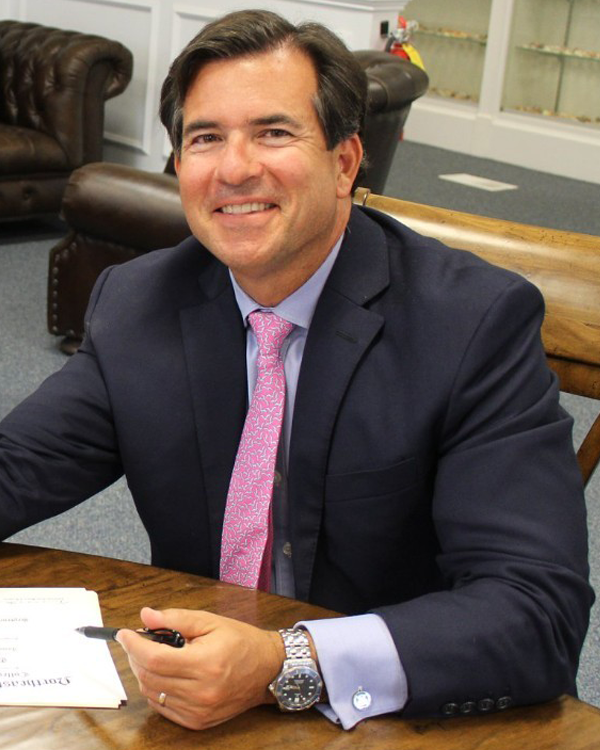
Eric R. Dawicki
President and CEO, Northeast Maritime Institute
Eric R. Dawicki
Eric R. Dawicki is an internationally respected maritime expert who has demonstrated leadership and industry-wide successes in the areas of maritime transportation, safety, security, and regulatory affairs, while also leading global advancements in maritime policy, education and training, and economic development.
A Master of Public Administration recipient with Concentrations in Public Affairs from American University in Washington, D.C., President Dawicki has led a distinguished career. With more than 33 years of experience in the maritime industry, his background combines policy and practical expertise with both theoretical policy development and real-world experience. This includes serving in the United States Coast Guard Reserve and the United States Merchant Marine, holding various shipboard positions, ship management specializing in LNG tanker operations, and providing consultancy to private shipping companies, port facilities and governments around the world on domestic and international regulatory instrument compliance.
Presently serving as President of Northeast Maritime Institute (NMI), Dawicki has developed it into the first private maritime college in the history of the United States, offering Maritime Science degrees and continuing education and comprehensive digital learning programs. This includes the development of innovative online learning simulators, training and certification platforms for mariners on a global scale. NMI also serves as a direct support to entities worldwide through the Center for Ocean Policy and Economics (COPE). In addition, Mr. Dawicki concurrently serves as Co-Founder, President and CEO of the Commonwealth of Dominica Maritime Registry, which has an international network of 28 regional offices and close to 400 vessels, many of which operate across the Caribbean, Mediterranean, Asian and Black Sea.
President Dawicki’s additional accomplishments include membership to the United States National Maritime Security Advisory Committee during the Obama and Bush Administrations and has served as the Lead Delegate to the United Nations' International Maritime Organization representing both the United States and the Commonwealth of Dominica and was both on the Board of Governors and Executive Governor to the UN’s World Maritime University, chairing it’s thirty-year sustainability plan, which is now successfully operating.
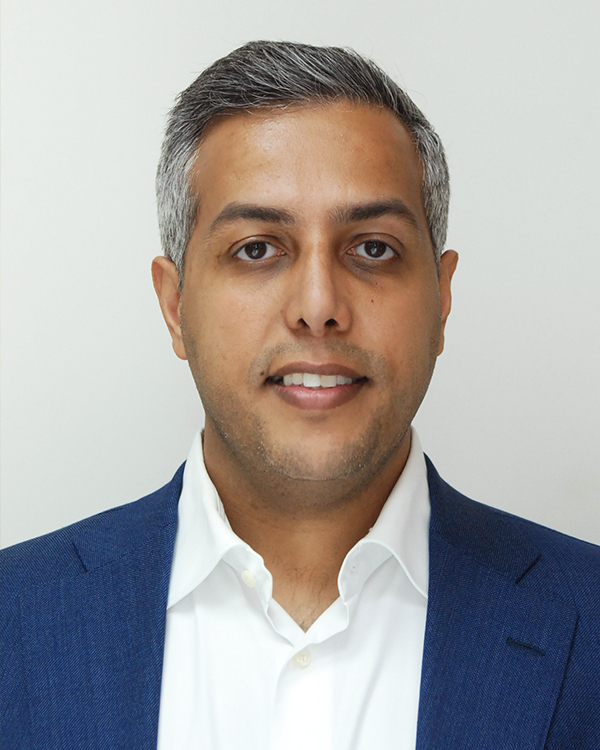
Essam Alammari
Essam Alammari
Essam was born in 1982 in Riyadh, and he is the second son for Mohammed Alammari -one of the businessmen who established the banking industry in Saudi Arabia during the 70s. Essam studied in Riyadh Schools (a private Royal School in Riyadh) and graduated with a high GPA of 94/100, which made him one of the top candidates for the Ministry of Defense Elite Scholarship to French Naval Academy.
Essam is holding a Navy Master of Science degree and a bachelor's degree in Naval Engineering and Naval Science from the French Naval Academy, and he is awarded with French national defense medal. He has 13 Years in service in the Royal Saudi Naval Forces in various geographical locations in Europe, Middle East, and Africa, with a diversified experience in several aspects in the Royal Saudi Naval Forces.
Essam started his career path as an Information Officer in the West Fleet, the most vital and strategic fleet in the Kingdom of Saudi Arabia, handling the operations and communications activities. Within 3 years, he became the Head of the Information Department, later in the same fleet he joined the operations team collaborating and partnering with different multinational forces on board of the ships.
In 2013, Essam started exploring and seeking for a multinational experience where he can interact with a multicultural environment that will provide him with different insights and exposure. This meets the Kingdom’s new ambitious vision (2030) in bringing the military and the defense system into the global level. Hence, Essam was appointed as a Naval Liaison Officer in Djibouti for a year before getting promoted to become the Military Attaché in The Embassy of The Kingdom of Saudi Arabia in Djibouti, building up the strategies for the Navy in the area (East Africa and Horn of Africa). During his appointment, Essam established the foundation of the Saudi Military Attaché office in Djibouti and strengthened the diplomatic and the military relations and has actively participated in Djibouti Code-of-Conduct. As an awardation of his service in the Attaché, Djibouti president Ismail Omar Guelleh has decorated him the medal of National Merit for Djibouti Republic of (27 June) as an appreciated of his great service in Djibouti.
Upon his accomplishment, the head of Arabian Coalition chose him to be the representative of Coalition Forces as a board committee member in the United Nations Verification Inspection Mechanism (UNVIM) for one year. Later, he became the Head of Maritime Security department (Navy HQ) during the critical time of the regional challenges.
On January 1st, 2019, Eng Essam Al Ammari was appointed by royal decree as the permanent representative of the Kingdom of Saudi Arabia to the International Maritime Organization (IMO) where he has served representing Saudi Arabia at all IMO-related meetings., Mr. Alammari has strong experience with international partnerships, bringing together discussion on complex issues as IMSO Vice Chair of the General Assembly session 28 and Vice Chair of the Technical Committee of the 32nd Assembly. He has also worked extensively in collaboration with the IMO and IMSO through projects such as the IMO CARES, IMSO LRIT and on numerous regional projects as well as championing for increasing engagement and funding for Saudi Arabia in IMO projects and technical cooperation.
Mr. Al Ammari is a strong advocate of gender-equality and uplifting representation in the maritime sector and was the first male to join the IMO Gender Network and remains an active and involved participant who currently facilitates the social media engagement for the organization. He also supports Arab Women in Maritime Association (AWIMA) and in honor of the inaugural day for Women in Maritime Day, Mr. Al Ammari coordinated the first ever regional virtual conference ‘Preserving a Legacy of Resilience Towards Achieving a Barrier-Free Working Environment,’ that invited over 20 esteemed professionals from government, finance, shipping, and education. Mr. Al Ammari was also invited by the IMO as one of the two males to discuss ways to advance gender equality in their inaugural virtual symposium Training- Visibility- Recognition: Supporting a Barrier-Free Working Environment for Women in Maritime.
4 years after serving the kingdom and its ambitious 2030 vision and its National Transport and Logistics Strategy (NTLS) and the maritime transport for the kingdom, Essam served as an advisor for the vice president of the transport general authority and he is now serving as the acting deputy for maritime sector for Saudi Arabia.
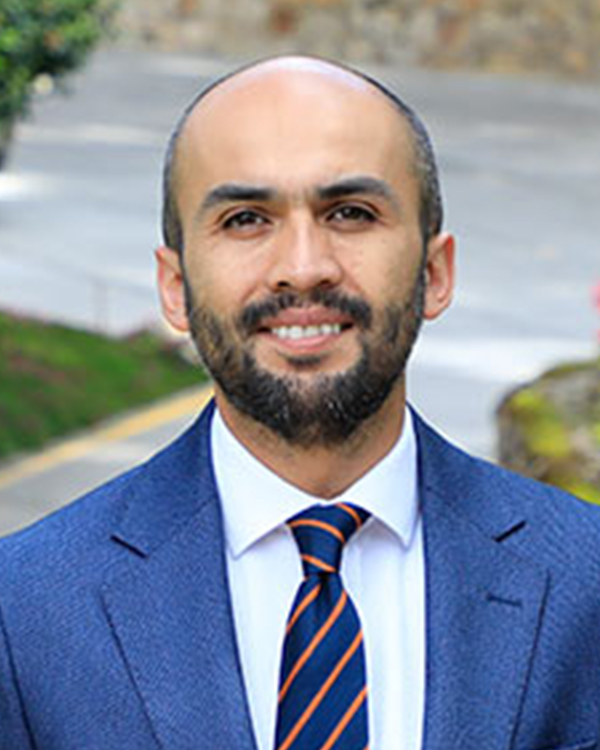
Javier Franco
Javier Franco
Javier Franco is a former president of the Colombian Maritime Law Association (ACOLDEMAR). He is currently a Titulary Member of the Comité Maritime International (CMI) and is also a BIMCO trainer. He is the author of the book “Legal aspects of logistics and logistics contracts” (2014) and editor of the book “Perspectives of Maritime Law and Logistics” (2024). Javier is an arbitrator of the Bogotá Chamber of Commerce in the fields of commerce and transportation. He also serves as the Director of the Observatory of Logistics and Supply Chain of Universidad Externado de Colombia and is a partner at Franco & Abogados Asociados.
Javier completed his education to become an attorney-at-law at the Externado University, where he also completed a postgraduate course in Maritime Law. He also obtained his LL.M. (master) in International Commercial and Maritime Law from the University of Wales Swansea, UK (distinction). Javier has more than 20 years of experience as a consultant and litigator in the fields of Transportation Law, marine insurance and Shipping Law.
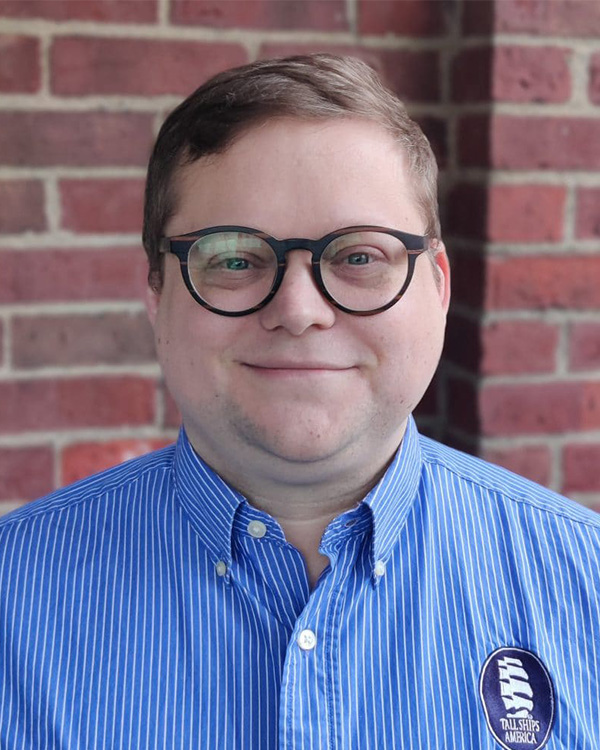
Nicolas Hardisty
Nicolas Hardisty
Nicolas Hardisty is the current Director of Operations and former Program Manager for Tall Ships America, the national sail training organization representing the United States. His work with Tall Ships America has been guided by a desire to remove financial barriers to participation in the maritime world and create educational and career development opportunities for underrepresented populations.
After graduating from high school at 15, Nicolas sailed on tall ships and worked in marine trades until eventually shifting into sales. Disillusioned with organizations that valued profits over people, he found fulfillment in the nonprofit sector with Foster Forward. Nic’s work with Foster Forward connected him with youth who were largely aging out of the foster care system, and disproportionately at risk for unemployment, homelessness, and incarceration. He collaborated with talented staff and academic partners to develop and implement an award-winning work readiness program.
Nic then earned a B.A. and M.A. in History from Rhode Island College with coursework rooted in African American and Colonial Atlantic histories. His master’s thesis was a microhistory that explored concepts of Black citizenship in post-Emancipation United States and presented a new narrative of President McKinley’s 1901 assassination that he argued was the most accurate telling of the event to date.
Nic has been an instructor of history at Community College of Rhode Island, Rhode Island College, and is currently an instructor of Maritime History at Northeast Maritime Institute. He regularly presents his academic articles at conferences and has spoken on historic diversity in the American maritime workforce, post-Emancipation Black education and citizenship, presidential assassinations and heroism, the World War I American Ambulance Corps, ideology in the late 20th century American punk subculture, paramilitary violence in Interwar Yugoslavia, and vicarious trauma among historians.
In 2021, Nicolas co-founded Global Empire & Resistance Scholarship, an academic collective that hosts conferences on resistance with the intention of connecting scholars and practitioners/social justice groups. The organization’s focus is on supporting BIPOC, LGBTQIA+, international, and early career scholars. Nicolas was a founding member of the tall ship industry’s first Diversity, Equity, and Inclusion Committee, and was also a member of the COPE° Working Group on Psychological Safety, Bullying and Sexual Assault and Harassment in the Maritime Sector. He currently serves on the New England Regional World History Association executive council and is an advisor with the Battle of Rhode Island Association.
Nicolas was named to the Rhode Island College Faculty of Arts & Sciences Alumni Honor Roll, which recognizes Rhode Island College alumni who have “brought honor to the college by distinguished achievement in their field.” In 2024, he received a commendation from the National Park Service for his work with the Washington-Rochambeau Revolutionary Route on developing the Women on the Water program, which provides shoreside and shipboard instruction in maritime skills and history to young women.
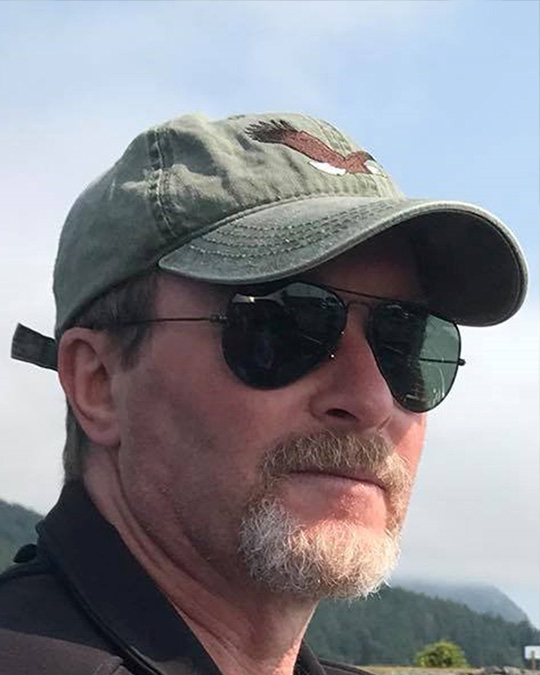
Eric Holliday
Eric Holliday
Originally a Marine Engineer by profession - working globally on tankers, bulk carriers and container vessels - Eric has spent the last 35 years as a risk and safety professional; both at senior management level, as well as an independent consultant & trainer - all built on a solid engineering and Human Factors background.
Eric is the CEO of the FISH Safety Foundation (www.fishsafety.org (FSF)) - a New Zealand-based international not-for-profit organisation promoting health, safety and sustainable development in all sectors of global fishing - marine capture, artisanal, inland fisheries and aquaculture. The Foundations' focus is on developing and implementing educational and training programmes, working with governments as well as communities on-the-ground, and developing legislative frameworks for countries - especially those in the developing world fisheries. The Foundation works closely with the IMO, FAO and independent organisations like the Pew Charitable Trusts and others.
His professional career has focused on safety in Transport and other high-risk industries, with extensive experience in strategic and operational level safety leadership, systems development, implementation, management, training, and auditing – both in the Risk, as well as Safety disciplines.
He has provided specialist consulting and training services to a wide spectrum of industry and Government bodies - ranging from Maritime, Nuclear Power and Rail, to Defence, Mining and Commercial Fishing - in New Zealand, Australia, Europe, Asia, the Caribbean, the United States and Canada, as well as in South Africa and Namibia. Eric is an experienced conference speaker, regularly presenting papers locally and internationally.
He continues his involvement in the broader maritime industry as CEO of a specialist maritime safety consultancy, Pro-Safe Marine (www.prosafemarine.com).
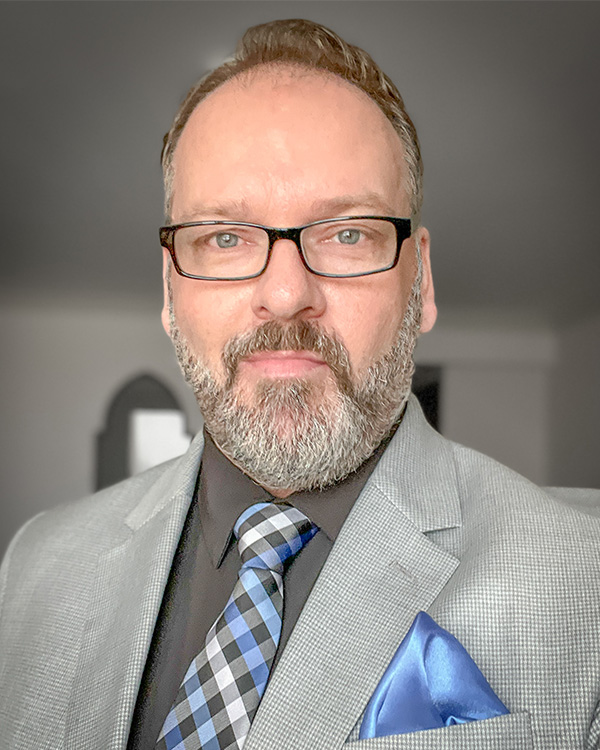
Robert I. Kaneiss
Robert I. Kaneiss
Robert I. Kaneiss is a highly experienced security practitioner with over 31 years of expertise in counterterrorism, maritime security, and diplomatic protective services. He has served in various capacities, including roles with the U.S. Department of State, the United Nations Office of Drugs and Crime (UNODC), and the U.S. Institute of Peace. His professional background encompasses extensive training and curriculum development, strategic advisory roles, and high-risk operational support across multiple continents.
Currently, Mr. Kaneiss is a Senior Subject Matter Expert in Maritime Security at UNODC, where he contributes to capacity-building initiatives within the Middle East, North Africa, and Mediterranean regions. He offers advanced training in Maritime Domain Awareness and law enforcement operations, emphasizing compliant/non compliant Visit Board Search Seizure (VBSS) techniques as well as IMO port and harbor security compliance. Additionally, he has been instrumental in the U.S. State Department's Special Program for Embassy Augmentation Response, where he continues to advise on senior foreign state diplomatic relations and provides antiterrorism assistance operational ground support.
Throughout his career, Mr. Kaneiss has advised foreign state diplomatic leadership and high-profile nongovernmental organizations, including the U.S. Institute of Peace, where he has acted as a Senior Security Advisor. In this role, he facilitated Hostile Environment Awareness Training (HEAT) and collaborated with the Overseas Security Advisory Council (OSAC) on regional security initiatives. He has also contributed to counterterrorism programs under the Global Antiterrorism Assistance (GATA) Program, where he served as a lead instructor, enhancing the skills of law enforcement and military personnel from partner nations.
From 2009 to 2014, Mr. Kaneiss led international maritime security projects with Trident Group, Inc., providing anti piracy security services in high-risk maritime zones, including the Gulf of Aden, Red Sea, Indian Ocean, Straits of Hormuz, the Mediterranean and the Arabian Sea. His operational expertise also extends to personal protection and entertainment security, where he managed venue security and executive protection for high-net-worth clients and public figures.
A former U.S. Navy SEAL, Mr. Kaneiss served honorably in Naval Special Warfare with extensive experience in unconventional warfare, counterterrorism, and special reconnaissance. His military background includes roles as a sniper, intelligence specialist, and tactical medic. His commitment to professional development is reflected in his certifications in areas such as Tactical Combat Casualty Care (TCCC), Project Management, and various antiterrorism and security disciplines.
Mr. Kaneiss is completing a Master’s degree in National Security Strategy with a focus on Middle East Foreign Policy from Regent University. His linguistic proficiency includes intermediate Spanish and basic French and Arabic (Tunisian berber dialect), further enhancing his capability to operate effectively in diverse cultural environments. He is a sought-after consultant, adult educator, and speaker, regularly sharing his expertise on national security and counterterrorism topics at academic and professional forums.
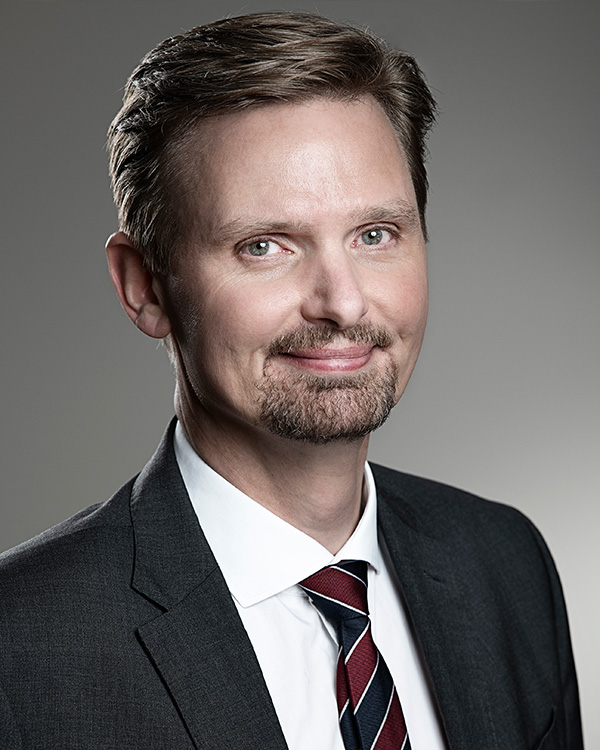
Jakob Paaske Larsen
Jakob Paaske Larsen
Jakob P. Larsen is the Head of Maritime Safety & Security at BIMCO – the World’s largest association of shipowners with more than 2,100 members globally. Within the scope of his team are all matters related to maritime safety and security, including cyber security.
Jakob’s career began in 1990 in the Danish Navy, where he pursued a seagoing career as navigator and surface warfare officer. Having served in the fleet and subsequently ashore in the Ministry of Defence, Jakob left the Danish Navy in 2010 with the rank Commander to become Maritime Security Officer in BIMCO. After three successful years in BIMCO, he changed over to Nordic Tankers where he expanded his responsibilities over time to become Head of HSSEQ. In 2015 Jakob went to Maersk Line to become Global Security & Marine QA Manager. In parallel with his tenure at Maersk Line Jakob was elected and served two full terms as Chairman of the Security Working Group of the European Community Shipowners’ Associations (ECSA). In 2018, Jakob returned to BIMCO, initially to head the Maritime Security department, and subsequently expanded the scope to also cover maritime safety matters.
Jakob holds several formal qualifications including Master Mariner, Principal Warfare Officer, Joint Command & Staff Course graduate, Company Security Officer/Ship Security Officer, and ISO 9001 lead auditor.
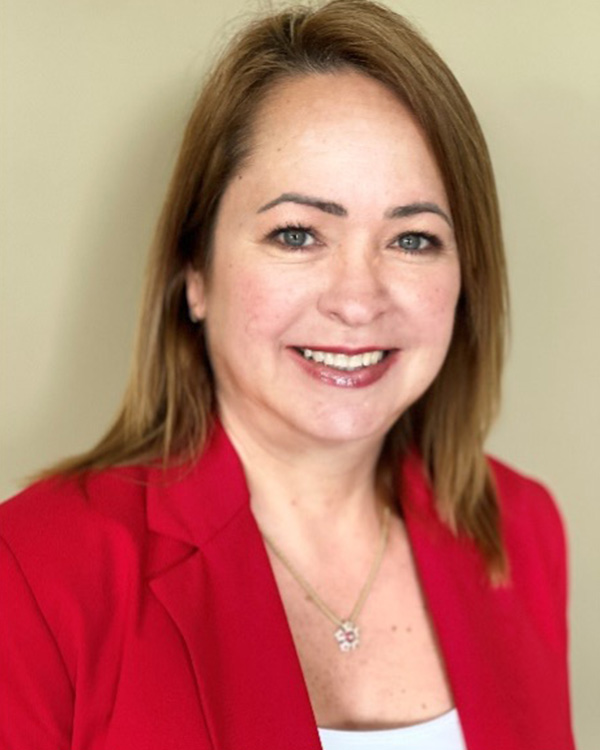
Lisbeth Laurie
Lisbeth Laurie
Lisbeth Laurie is Program Manager and expert in the design of initiatives aiming to improve maritime and port security, including promoting, designing, and implementing key capacity-building programs for north, central and south American countries; developing training content, best practices, and tabletop exercises related to port security; and implementing efforts related to supply-chain security.
In her role as a Program Manager of the Maritime and Port Security Program of the Inter-American Committee against Terrorism (CICTE) of the Organization of American States (OAS), a multilateral organization covering the Americas, Ms. Laurie has led important initiatives: (1) the development of National Maritime Security Strategies for Guatemala, as well as for each of seven Eastern Caribbean countries and also creation of an Eastern Caribbean Regional Maritime Security Strategy; (2) an operational assessment of a key maritime port for the Saint Vincent and the Grenadines; (3) publication of Maritime Cybersecurity in the Western Hemisphere Guidelines, and a Verification and Compliance Manual for Port Security Officials.
Ms. Laurie played a leading role in the substantive execution of a number capacity-building initiatives on supply chain security focused on Authorized Economic Operator Program in Argentina, Brazil, Chile, Panama, Paraguay and Mexico, as well as in maritime and port security. This has included a number of comprehensive assessments of security-related capabilities at both the national and port levels in Belize, Costa Rica and Mexico; leading national level workshops on maritime security drills and exercises in Colombia, Guatemala, Jamaica, Panama and Uruguay (the latter in conjunction with the International Maritime Organization); and helping to facilitate a regional workshop and roundtable discussion among senior leadership responsible for maritime security in Latin America and the Caribbean.
In addition, Ms. Laurie conducted public outreach and have represented the OAS at numerous national and regional maritime security-related training courses, conferences and meetings of senior decision-makers with a view towards acting as a liaise with donors and prospective donors, and building partnerships with government bodies, stakeholders and other organizations.
At the General Secretariat of the OAS, Mrs. Laurie held a variety of managerial positions, primarily focused on promoting efficiency within the Organization by optimizing processes, resources and ensuring compliance with budgetary and financial rules and regulations of the General Secretariat, its subsidiary bodies, donors and other related entities. In 2010, Ms. Laurie was appointed by the OAS General Secretary as a board member of the OAS Medical Trust Fund.
Ms. Laurie holds degree as a Public Accountant (CPA) and a certification in Forensic Accounting from Georgetown University. As well as various graduated studies related to maritime security; including, Incident Command System; and Maritime and Port Security Official from the Navy University from Mexico; Dynamics of Maritime, River and Port Drug Trafficking from Navy School “Almirante Padilla” Colombia; and Development of National Security Strategies and Maritime Transport of Goods: Key elements, contracts and insurance from the International Maritime Business School from Spain. She is fluent in Spanish and English and has over twenty years of experience working for international organizations.
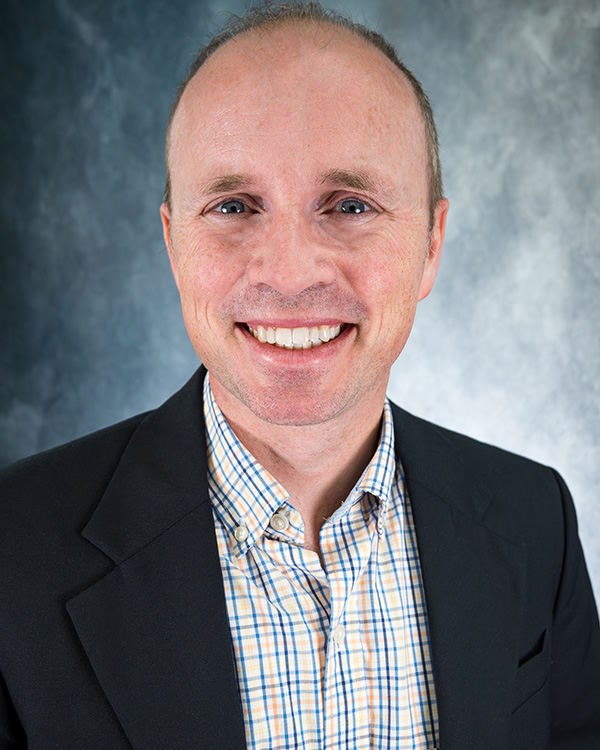
Brian McNamara
Brian McNamara
Dr. Brian McNamara joined the Tulane University School of Professional Advancement after 25 years of active duty service with the U.S. Coast Guard. In his legal tours, Brian served as the chief of the service’s marine safety law practice group, deputy counsel for regional operations along the Gulf Coast and Western Rivers, and attorney-advisor for the Marine Casualty Investigations National Center of Expertise. Based on his military criminal law experience, the Judge Advocate General appointed Brian to the bench as a collateral duty court-martial judge from 2017-2020.
Brian developed his passion for teaching as an instructor with the Coast Guard’s Maritime Law Enforcement School and began his career as a Deck Watch Officer for a Coast Guard cutter conducting North Atlantic fisheries patrols and Caribbean counter-narcotics operations. He finished his military career as the Logistics Department Head and Commanding Officer of Military Personnel for Coast Guard Sector New Orleans, where he led the teams providing personnel, budget, weapons, and engineering support for all service operations in Southeast Louisiana. He has taught law as an adjunct professor for Tulane Law School and Stetson University College of Law in Gulfport, Florida.
Dr. McNamara’s teaching and research focus on public policy, maritime law and policy, and cross-sector collaboration.
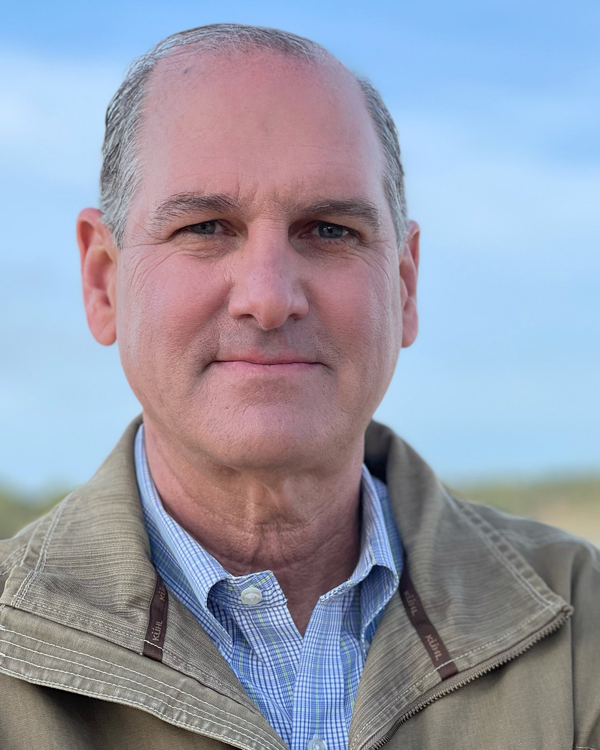
Rett Newton
Coastal Resilience
Rett Newton
Rett Newton retired as a Colonel from the U.S. Air Force in 2011 following a 28-year career that included leading-edge engineering, F-15E Strike Eagle leadership, and assignments as an Arabic foreign area officer. He has continued his passion for engineering by designing, building, operating, and maintaining autonomous aircraft, terrestrial vehicle, and surface vessel systems with autopilot, datalink, and advanced payloads. Rett joined the Duke University Marine Laboratory team in June 2015, serving as initial cadre for the Marine Robotics and Remote Sensing (MaRRS) Lab, and he is a Duke University PhD candidate studying Marine Science and Conservation. Rett served as the Mayor of the Town of Beaufort, NC from 2017 to 2021, and he is currently running for the U.S. Senate.
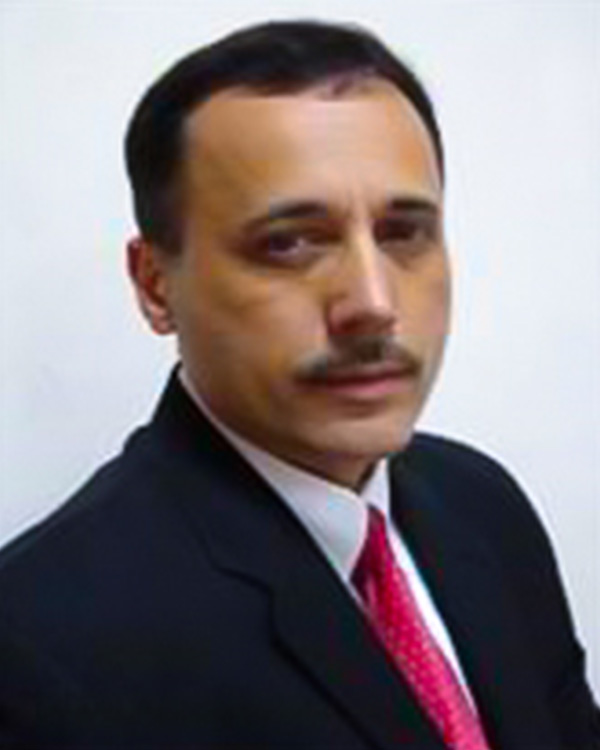
Richard Pineiro
Richard Pineiro
Under the auspices of the U.S. Department of State’s Global Defense Reform Program, Richard Pineiro serves as a Multi-Domain Awareness (MUDA) Advisor to Ecuador’s Ministry of National Defense. He directed the development of a multi-year MUDA Country Action Plan (CAP) to enhance Ecuador’s capacity to manage threats to the nation’s safety, security, economy, and environment, and he currently supports the host nation's implementation of the CAP objectives.
Richard Pineiro served 28 years in the United States Coast Guard, with nearly 15 years in international assignments. His operational, training, and advisory experience ranges from fisheries and search and rescue to port security and maritime law enforcement. Key positions include cutter commanding officer, U.S. Embassy liaison officer, maritime law enforcement and intelligence section chief, and international deployable training team manager. Richard planned, coordinated, and participated in numerous security assistance projects in Latin America and Southeast Asia. As Chief, Law Enforcement and Intelligence Divisions, San Juan, Puerto Rico, he managed operational law enforcement and intelligence functions throughout the Caribbean Basin, planned complex multinational counterdrug training and exercises, and supervised the production of post-seizure analysis products for the USCG and partner agencies.
Richard has an additional 15 years of post-military international experience supporting U.S. government and commercial initiatives in over a dozen countries. He advised and trained domestic and international port personnel in various maritime codes and initiatives including the International Ship and Port Facility Code, Maritime Transportation Safety Act, Container Security Initiative, and Customs Trade-Partnership Against Terrorism. He assessed the Kenya Coastal Security Initiative program and designed solutions for increasing maritime security capacity, MDA, and operational capability. As the senior technical advisor under the U.S. Department of Justice’s Indonesian Marine Police Assistance Program, he authored a multiyear assistance plan which provided a framework for training and infrastructure development programs to confront smuggling, piracy, terrorism, and other maritime challenges.
As a senior advisor to the Abu Dhabi Maritime Security Executive Council, Richard worked with the Critical National Infrastructure and the National Crisis and Emergency Management Authorities to develop and implement the National Maritime Strategy of the Emirate of Abu Dhabi, United Arab Emirates. He previously supported the U.S. Department of State Global Defense Reform Program as a maritime domain awareness advisor, with an emphasis on countering IUUF activity in Oceania, and he supported the U.S. Department of State’s Global Anti-Terrorism Assistance program as a trainer and subject-matter expert. He graduated from the University of Nevada Las Vegas with a Masters in Crisis and Emergency Management.

Stewart Sarkozy-Banoczy
Coastal Resilience
Stewart Sarkozy-Banoczy
Stewart Sarkozy-Banoczy is Director Global Strategic Partnerships and Development, and Senior Advisor for North America for the Resilient Cities Network, the evolved, city-led network of the 100 Resilient Cities (100RC) program. In these roles, special projects include the creation of the Resilient Community Impact Fund (RCIFund) and co-facilitation of the Resilience 21 (R21) Coalition.
During the 100RC period Stewart served in variety of roles - Senior Advisor in Resilience Finance, Regional Director for Europe and the Middle East and Regional Director/City Relationship Manager for Latin America and the Caribbean, as well as leading the team that developed the 100RC challenge starting in 2013, through design firm, Context Partners, where he was partner and managing director.
Just prior he was the partnerships director for the Hurricane Sandy Task Force and Director of the Office for International and Philanthropic Innovation at HUD. Stewart spent the previous decade in the community development, sustainability and indigenous nation building arena, providing support for hundreds of tribal nations, specifically in the development of community development financial institutions and creating environmental, STEAM, and entrepreneurship programs and coursework in the tribal college setting.
Stewart is the founder of Precovery Labs, where creativity and community drive impact and awareness for clients like RISE-Resilience Innovations, Ocean Conservancy, Opportunity Finance Network, NDN Fund/Collective, and Conservatoire d’Littoral, as well as an active professional documentary and fine art photographer. He is also Senior Advisor for the Global Island Partnership, member of the advisory committee for SeaAhead, rapporteur for SMILO-the small island organization’s evaluation task force and a member of Four Bands Community Fund’s board of directors.
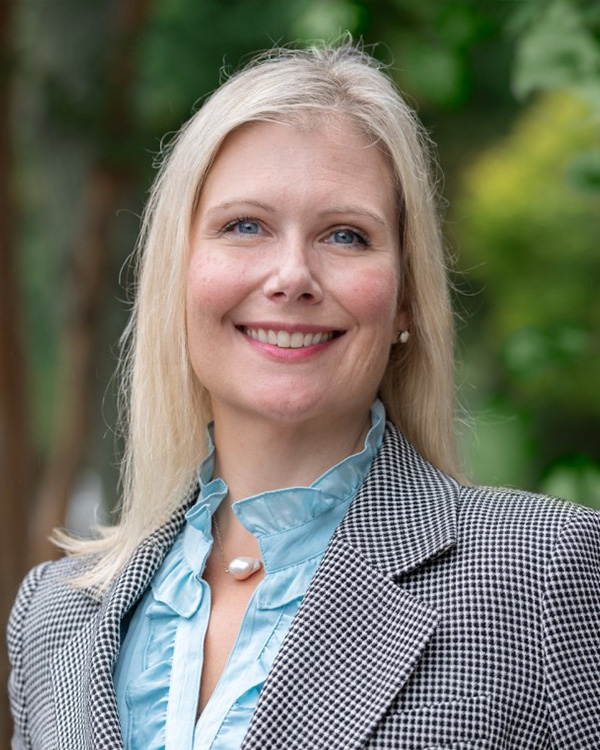
Kristi Shaw, Ph.D., MHS
Kristi Shaw, Ph.D., MHS
Dr. Shaw is a multidisciplinary scientist and entrepreneur, with over 25 years of experience at the intersection of environmental science, public health, and oceanography. Raised in a multi-generational farming and waterman family on the Eastern Shore of Maryland, Dr. Shaw’s firsthand understanding of environmental stewardship, community resilience, and the interconnectedness of land and water informs her lifelong dedication to sustainability and public health.She is recognized for advancing strategies in climate change mitigation, renewable energy, and human health, with a unique record of integrating research, policy development, and industry practice.
Dr. Shaw is CEO and Founder of Mermaid Energy, a development firm focused on developing industrial-scale biorefineries to combat the sargassum inundation in the Caribbean region. Previously, Kristi served as Chief Environmental Strategist and Director of Regulatory Compliance for CleanBay Renewables, a waste-to-biofuels development firm. where she led greenhouse gas offset pathway development in collaboration with the California Air Resource Board. Her work encompasses regulatory compliance, stakeholder engagement, and optimizing large-scale renewable energy projects for environmental benefit, public health protection and supporting communities.
With a NOAA-sponsored doctoral fellowship hosted at the University of Maryland Center for Environmental Science, Kristi broke ground with the first human recreational exposure assessment for waterborne infectious diseases (Vibrio spp.) in the Chesapeake Bay, and has published widely on the health impacts of climate change. This work inspired her to move beyond the lab, dedicating her efforts to developing financially-solvent projects that address environmental challenges while creating opportunities for local communities.
She is committed to environmental justice and interdisciplinary collaboration, and has contributed as a lecturer and mentor to diverse audiences. Her career includes collaborations with NGOs, government agencies, and academic institutions to foster innovation and resilience in both ocean policy and public health.
She holds a Ph.D. in Marine, Estuarine, and Environmental Science (Biological Oceanography) from the University of Maryland, a Master of Health Science from Johns Hopkins Bloomberg School of Public Health and completed a post-doctoral fellowship in Environmental Epidemiology at University of Maryland, College Park.
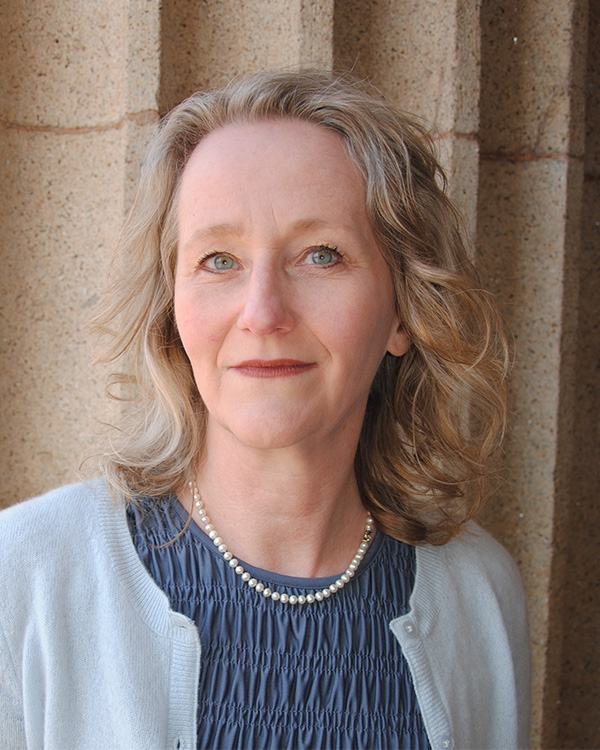
Dr. Kristina Siig
Dr. Kristina Siig
Professor Dr. Kristina Siig is a distinguished maritime lawyer, focusing on the interplay between private and public law regulations under the Law of the Sea.
A full professor at the University of Southern Denmark as well as an adjunct professor at the Scandinavian Institute of Maritime Law, her work is characterized by a strong profile in comparative law and a commitment to interdisciplinary research methods.
She has been involved in numerous high-impact projects and has received significant grants and is an often-used expert commentator on maritime and law of the sea related issues in both Danish and international media as well as consulting with public agencies on such issues.
Recently, she has been leading the Danish government’s Task Force regarding the Scandinavian Star ferry disaster which included coordination of employees with different backgrounds and handling of external communications and political pressures.
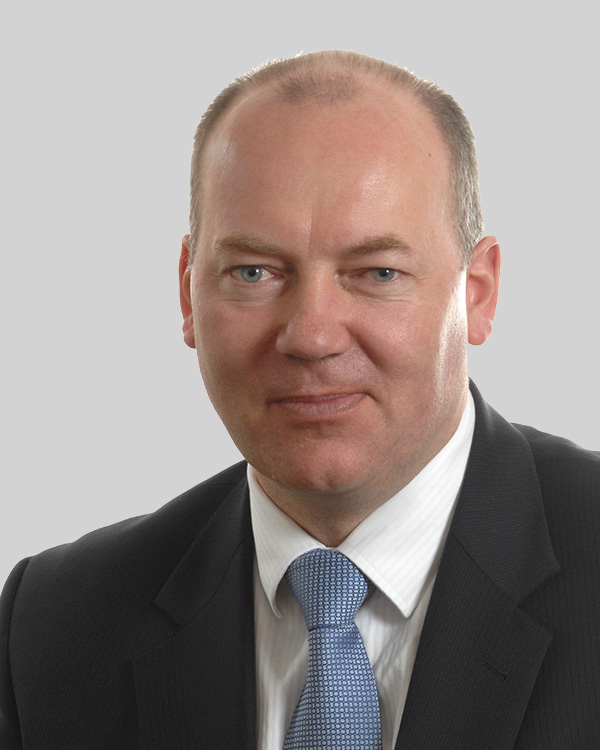
Capt. Kuba Szymanski
Capt. Kuba Szymanski
Captain Kuba Szymanski is the Secretary General for InterManager, the international trade association for the ship and crew management sector.
He began his sea career in 1985. Graduating from the Maritime University of Szczecin with a Master’s Degree, he became a deck officer with Dorchester Maritime Limited Isle of Man where he sailed gas/chemical/product tankers, reaching his first command as a Master in 1999. He continues to maintain his Captain’s Licence.
In order to support his managerial skills, he attended Lloyds Academy and obtained a Certificate in Ship Superintendence, before gaining an MBA at the International Business School, Isle of Man and John Moores University (JMU) Liverpool.
In his roles ashore, he worked as a Marine Superintendent, HSEQ Manager, Fleet Manager and General Manager. He was appointed Secretary General of InterManager in January 2010.
Through his role with InterManager, Capt Szymanski has participated in many industry-wide projects, including the production of international shipping industry Key Performance Indicators (KPI), the Save Our Seafarers campaign, and the Martha Project which focussed on seafarer fatigue at sea. He currently chairs the Human Element Industry Group (HEIG) Enclosed Space Committee. During the Covid-19 pandemic Capt Szymanski represented InterManager on a number of key maritime panels, supporting the health and well-being of seafarers around the world and helping to ensure business continuity for the global supply chain.
In addition to being a member of the Maritime Professional Council of the UK, Capt Szymanski is a fellow of the Nautical Institute and a member of its Executive Board. In 2011 he joined the TK Foundation, which supports non-profit maritime and youth programs, and he currently chairs its HR and Renumeration Committee.
Capt Szymanski is a familiar face on the international maritime conference circuit and also lectures on ship management at the International Business School, Isle of Man. In July 2018 he was awarded an Honorary Doctorate by Solent Southampton University in recognition of his contribution to the maritime industry.
In April 2022 Capt Szymanski took up the additional role of Chair of the Board of the 200-year-old Seafarers Hospital Society (SHS), the UK’s oldest maritime charity. SHS provides a range of health and welfare services to UK-based seafarers and their dependants.
In his leisure time, Kuba is a keen yachtsman and races sails his Beneteau First 40.7 competitively around Europe, mostly double or single handed. He is married with a son who is also a seafarer.
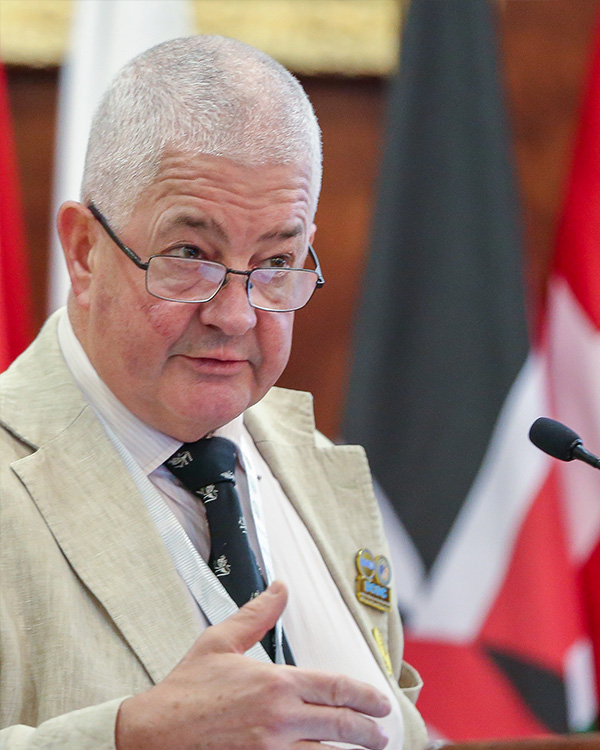
Chris Trelawny
Chris Trelawny
Chris Trelawny was commissioned as Deputy Secretary General of INTERPORTPOLICE on 1 January 2022. In addition to his INTERPORTPOLICE duties, he has worked with the United Nations Office on Drugs and Crime as a consultant developing a regional maritime security strategy for Caribbean countries; with the signatory States to the Djibouti Code of Conduct delivering training on new and emerging threats, information sharing protocols and facilitating the annual high-level meeting; lectured to courses at the World Maritime University; and spoken at a range of international conferences and training events worldwide.
Prior to that, Chris served the International Maritime Organization (IMO) having joined in March 2003 as a maritime security specialist, serving as Head of Section, Senior Deputy Director and, in November 2014, Special Advisor to the Secretary-General on Maritime Security and Facilitation. In 2018 he was appointed to the new post of Chief, Sub-Division for Maritime Development within the Technical Cooperation Division (TCD). From January to October 2020, he was Acting Director of TCD. He left IMO in December 2021.
During his time at IMO, Chris had been responsible for advising and liaising with IMO Member Governments, international organizations and non-governmental organizations on the facilitation of global maritime transport, maritime security, piracy and law enforcement related issues, including the smuggling of migrants by sea. His major projects included writing and delivering the IMO maritime security “Train the Trainer” course and the development of multi-disciplinary, multi-agency projects aimed at finding national and regional solutions for piracy and maritime security challenges. These include the development of the 2009 Djibouti Code of Conduct (signed by 20 countries) aimed at addressing Somalia based piracy, the 2013 Yaoundé Code of Conduct for West and Central Africa, (signed by 25 countries) and, in January 2017, the Jeddah Amendment to the Djibouti Code of Conduct (signed by 16 countries) that widens the scope of the original code to address a range of maritime crimes. He was also responsible for conducting security needs assessment missions to IMO Member States, including missions in support of the UN Security Council Counter Terrorism Executive Directorate. His published work includes a chapter in the IMLI Treatise on Global Ocean Governance Volume III and numerous articles in international journals. He served as secretary to the IMO Facilitation Committee which addresses border control issues and had management oversight of the IMO Women in Maritime programme. He lectured regularly to the World Maritime University and the IMO International Maritime Law Institute.
Chris has also worked closely with navies on issues relating to maritime security operations, counter proliferation and civil/military cooperation; and with other agencies on issues such as security of the supply chain. In 2014 Chris was awarded the UK Merchant Navy Medal for “services to counter-piracy strategy and to Royal Navy/Merchant Navy liaison”. In 2016 he was awarded the United Kingdom Marine Society’s Thomas Grey Medal and the United States International Police and Public Safety 9/11 Medal – Maritime for his significant contribution to maritime security.
Before joining IMO, Chris spent six years with the International Civil Aviation Organization (ICAO) as the Aviation Security Training Officer. In addition to developing and delivering training courses, he was responsible for conducting assessments of Contracting Governments compliance with ICAO Annex 17 – Security and was a qualified security auditor for both ICAO and the European Civil Aviation Conference. Prior to that, Chris served for four years with the UK Government as an aviation security inspector, including the introduction of the UK air cargo security programme; and eight years with HM Customs in law enforcement roles, largely at Heathrow Airport but also at sea on HM Customs Cutters.
Chris served for 30 years as an officer in the Royal Naval Reserve and is a Younger Brother of Trinity House.
Fellows
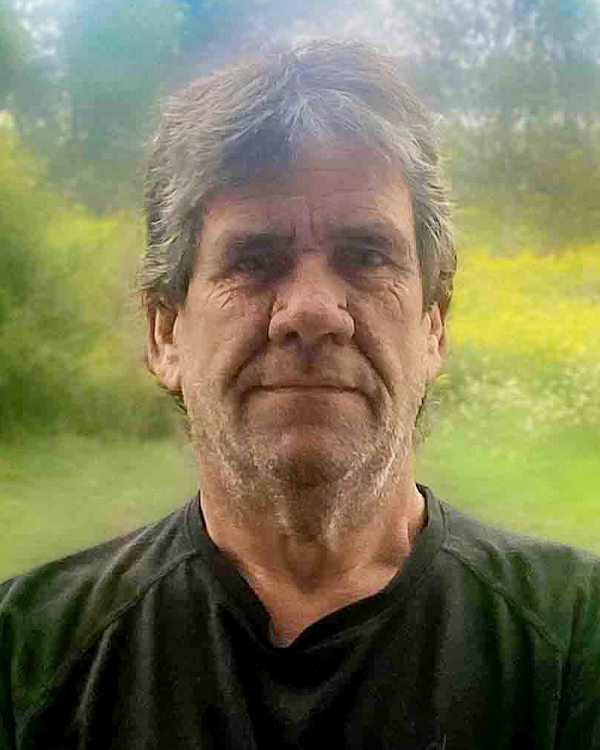
Clayton A. Burke
Clayton A. Burke
Clayton A. Burke is from Cape Breton in New Waterford, Nova Scotia. He is the co-CEO of the SOS Foundation, which is a cooperative startup established in 2020.
Clayton is currently working on design and research on several new products/inventions, ranging from topics such as oceans and endangered species to medical equipment innovation and more. Clayton is also collaborating with several U.S. companies on design, intellectual property, ocean research and patents.
With a 25+ year career as a professional automotive mechanic, Clayton has experience and licensing for systems such as HVAC-heating, ventilation, and air conditioning. Clayton also has electronics training for fuel injection, antilock brakes, and vehicle electronic systems, and 20+ years of experience in trouble shooting and repair.
Clayton has received three provisional U.S. patents for his work over the past few years -- one for a medical device (ventilator) and two for commercial fishing gear innovations.
In September of 2022, Clayton had an article published in the Substantial Fishing Gear Edition of the Sea Technology magazine -- a leading international marine publication. This article focused on Clayton and his co-founder's new innovation in commercial fishing equipment, the goals of which are to reduce marine entanglement, improve mariner safety, and eliminate fisheries closures.
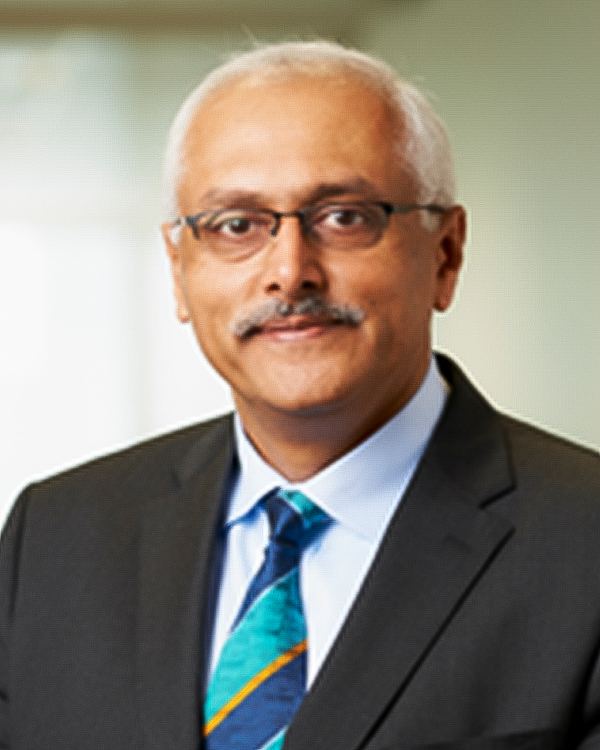
Anuj Chopra
Anuj Chopra
Captain Anuj Chopra is an international executive, enterprise risk manager, and big data champion who has successfully forged client relationships in the maritime industry for more than three decades. His deep experience developing ethical, customer-focused EQ cultures has led him to conclude high-value contracts with some of the largest shipping companies in the world.
Captain Chopra cofounded ESGplus LLC, an international consulting firm focused on bringing resiliency, efficiency, and independent board advisory to clients invested in the global maritime supply chain. ESGplus promotes sustainability, increased safety standards, and reducing the environmental impact of the maritime industry as a whole. Captain Chopra guides ESGplus as a diversity-focused company, providing client value by promoting exemplary, transparent customer solutions for a sustainable and resilient maritime supply chain.
Before his time at ESGplus, Captain Chopra spent nearly a decade as a Vice President of RightShip, negotiating high-level due diligence and compliance agreements in developing business across North and South America leading to over 500% growth. Prior to his time at RightShip, he served as the President of Anglo-Eastern Houston, with direct oversight of all fleet vessels visiting US ports, risk evaluation, and government relations.
Captain Chopra began his seafaring career as a deck cadet, working his way up to Captain. He has commanded large bulk carriers and tankers and holds a Commonwealth Extra Masters Certificate of Competency and Shipping Management from the Indian Institute of Management, Ahmedabad.
Captain Chopra currently serves as a Fellow of The Nautical Institute (Chairperson of the U.S. Gulf Branch), an Ambassador for the Sailor Society, and on the Board of Directors at the Houston International Seafarers Center. He was elected President of the Industry Advisory Board for the Supply Chain & Logistics Technology Degree at the University of Houston. Captain Chopra is a Board Member and Treasurer of the North American Marine Environment Protection Association (NAMEPA) and a member of NOAA’s Hydrographic Services Review Panel.
He has been continually mentoring students and professionals in the maritime supply chain for the last 32 years and is an Adjunct Professor for the Supply Chain Program at the College of Technology, University of Houston. He is the Co-Author and Assessor for NAMEPA’s ESG/CSR Maritime Sustainability Passport Program.
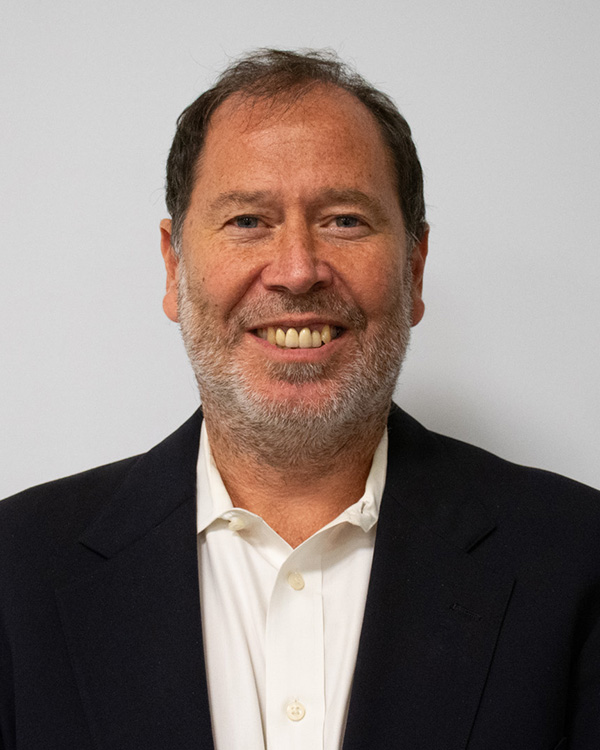
Marc Davies
Marc Davies
Marc Davies focuses his environmental practice on a wide range of issues arising from permitting disputes, contaminated sediment and groundwater sites, as well as allocating liability for, and negotiating remediation of, complex Superfund sites. Marc works with consultants and expert witnesses in developing science-based challenges to governmental decisions involving air and water quality modeling, the relative merits of competing risk assessments, groundwater and sediment contamination, and Natural Resource Damage claims. He is also experienced with regulatory compliance issues involving environmental health and safety audits, and due diligence surrounding real estate, business and financial transactions.
Marc has a Master’s Degree in Environmental Science that included air and water modeling work, and a master’s thesis focusing on renewable energy technology transfer to lesser developed nations. He is an adjunct professor of Environmental Law at the Rutgers University School of Law, and has taught a CLE course entitled “Fundamentals of Water Law in Pennsylvania: Protecting Water Rights, Use and Quality,” and co-authored all materials for course participants.
A long-time litigator, Marc is experienced with white collar criminal defense involving both environmental issues, and more traditional product liability and mass torts. Marc’s practice encompasses assisting pharmaceutical and industrial clients in responding to governmental investigations and criminal prosecutions involving the FDA, NRC and EPA, and a range of civil matters, including acting as independent counsel for senior business managers and scientists involved in civil and criminal actions.
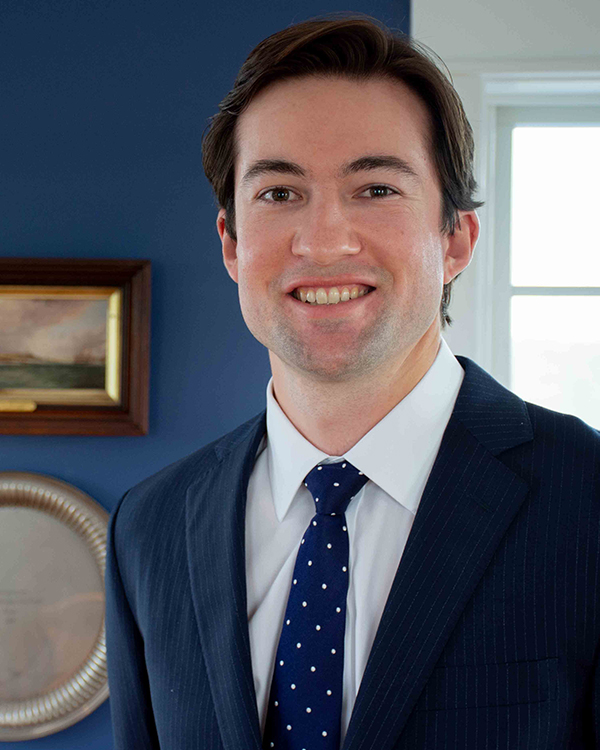
Morgan G. Dawicki
Morgan G. Dawicki
Mr. Morgan G. Dawicki is the Chief Operating Officer at the Northeast Maritime Institute, Director of International Relations at the Dominica Maritime Registry, and President of the Northeast Maritime Institute Foundation. He graduated from The George Washington University in 2018 with a bachelor’s degree in International Affairs, concentrating in Conflict Resolution. During the summer of 2016, he completed an internship at the State Department in the OES Bureau’s Office of Policy and Public Outreach. Since the summer of 2017, Morgan has served part-time as Captain aboard S/V Fritha, a traditionally rigged brigantine and was in this capacity the youngest licensed tall-ship captain in America. In 2018, Morgan was a Fellow of Nautical Science at Tabor Academy, teaching nine Nautical Science courses in various subjects. Morgan is currently enrolled in American University's Key Executive Leadership MPA program with an expected graduation date of Spring 2023.
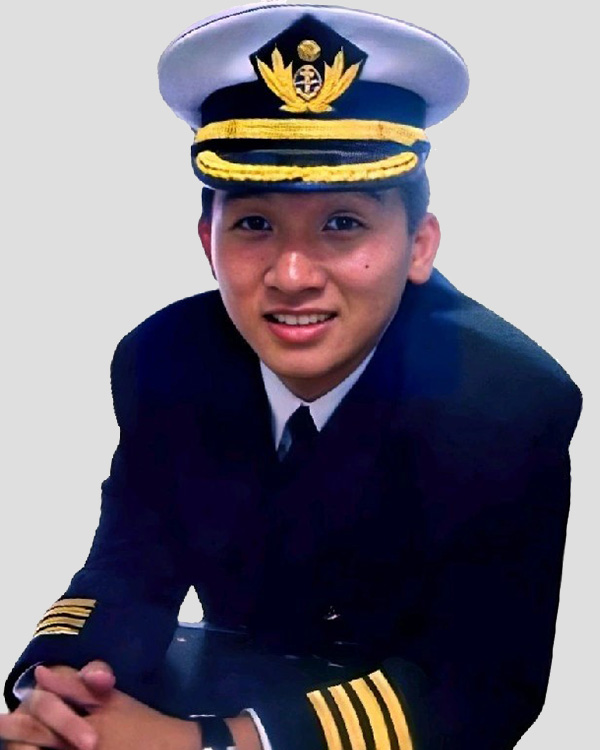
James Foong
Capt. James Foong, MBA, FNI
Captain James Foong is an active, ocean-going Master Mariner whose work bridges frontline maritime operations with global ocean governance and policy. With nearly two decades of experience at sea and in senior assurance roles ashore, he contributes practitioner-informed judgement to discussions on how ocean policy is translated into real-world operational outcomes.
He has held command at sea and previously served as Group Lead Auditor with the MISC Group, providing independent assurance on safety, governance, and compliance across complex commercial and offshore fleets. His experience spans safety-critical decision-making, risk management, and leadership in high-consequence maritime environments.
James holds an MBA in Shipping and Logistics from Middlesex University London and is a Fellow of The Nautical Institute. He serves on the Maritime Advisory Board of CHIRP (UK), providing independent professional judgement on confidential safety reports and contributing a human-factors perspective to just culture and systemic safety improvement across the global maritime sector. He is also a Council Member of The Nautical Institute, contributing to institutional governance, professional standards, and strategic risk oversight.
Beyond operations, James contributes to international ocean governance as an Expert Reviewer and Writing Team Member for the United Nations World Ocean Assessment (WOA III), a flagship UN process reporting to the UN General Assembly. His work focuses on the human element of ocean governance, including decision-making under risk, workforce wellbeing, fatigue management, safety culture, and the practical interface between regulation and operations.
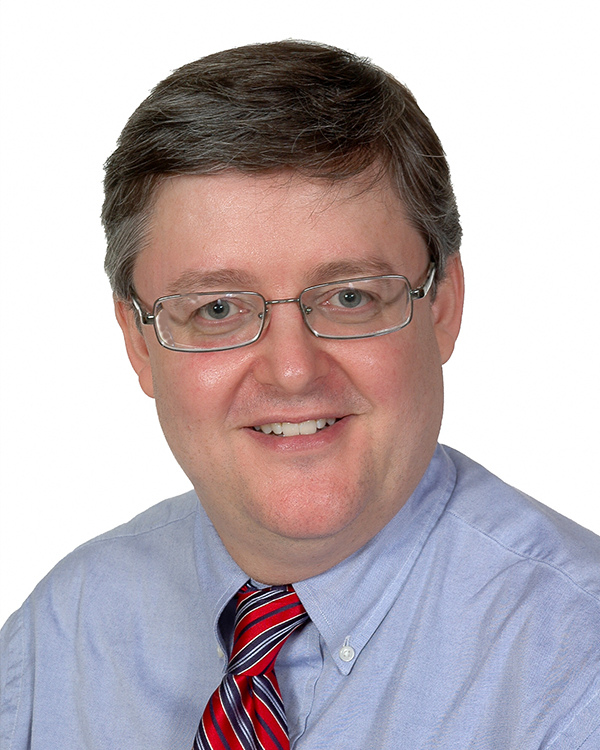
Dr. William Lawrence, PhD
Dr. William Lawrence, PhD
Dr. William Lawrence lived and worked for fifteen years as a senior diplomat, analyst, and international programs director in seven North African, Sahelian, and Middle Eastern countries and France. He is currently a senior scholar at the North Africa and Sahel Program of the Middle East Institute, manages projects for the Center for Ocean Policy and Economics at Northeast Maritime Institute, and consults for several MENA- and Africa-focused CSOs. Since 2011, he served as Crisis Group’s North Africa director with an additional Sahel portfolio, the Center for the Study of Islam and Democracy’s MENA Program Director, and Control Risks’ MENA Associate Director. Previously, he served as Global Engagement Senior Advisor at the State Department’s Bureau of Oceans and International Environmental and Scientific Affairs (OES), where he developed programs as a member of three White House working groups for core Obama administration initiatives in global engagement with Muslim communities. He co-created Global Innovation through Science and Technology (GIST), the U.S. Science Envoy Program, and the Maghreb Digital Library; co-chaired the U.S.-Egypt S&T Development Fund for four years; directed a NATO wind energy project in Morocco and Mauritania; co-created the Trans-Sahara Counterterrorism Partnership; served as a West Africa regional security officer; served at U.S. missions in Nouakchott, Marrakech, Casablanca, Rabat, Algiers, Tunis, Tripoli, Alexandria, Cairo, Jeddah, Riyadh, Abu Dhabi, Doha, and Kuwait City; and helped negotiate and implement the first major U.S.-Libya agreement in decades. He has taught at Georgetown, Johns Hopkins, George Washington, Tufts/Fletcher School, Amideast/Mohamed V, and Cadi Ayyad universities and for six years in the U.S. intelligence community and has lectured at over 100 universities worldwide. He appears regularly on BBC, NPR, VOA, France 24, Al Jazeera, TRT, and CGTN and has appeared on over three dozen African TV and radio stations. He received six merit awards from the State Department, two medals from the Egyptian government, an alumni achievement award from Duke University, and the 2018 Distinguished Alumni Award from the Fenn School. He also co-produced six MENA-related films and fourteen albums of North African music.
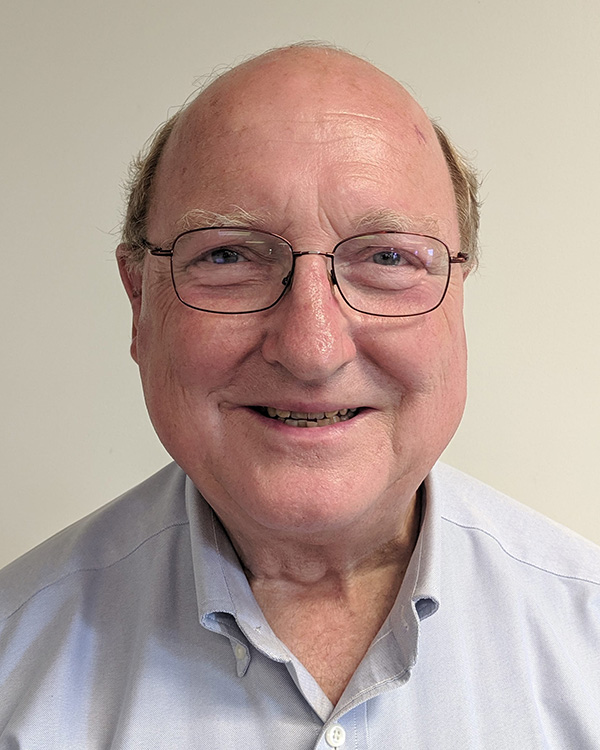
Craig Lindell
Craig Lindell
Craig Lindell is the founder and former CEO of Aquapoint Inc. Aquapoint is focused on the design, implementation, and operation of advanced biological wastewater treatment systems for flows between 2000 gallons and 4,000, 000- gallons per day. (See www.aquapoint.com)
Craig's background includes senior management, turn-around, founder and CEO responsibilities in domestic and international businesses, developing joint ventures, and managing under extreme situations from rapid growth to bankruptcy.
Craig’s entrepreneurial interests are commercial, social, and ecological. They are motivated and informed by capital and job formation, as well as education, social and ecological justice issues, and the practice of citizenship. He is particularly interested in deliberative democratic processes such as citizen’s forums, and root cause analysis approaches to dialogue, as well as Elinor Ostrom’s insights into governing and managing the commons.
Craig’s voluntary activities have included a broad range of industry, civic, educational, and environmental boards of directors. Of note, he was on the founding Board of the Ocean Explodium in New Bedford, MA. He has served multiple terms on the Board of the Coalition for Buzzards Bay, where he chaired the Long-Range Planning Committee and assumed responsibility for drafting its first sustainable development mission statement. In addition, he served on the Board of the Andover Newton Theological School. He was an Executive in Residence at the Heller School for Social Policy and Management at Brandeis University and he is the co-author of "The Coherence Factor: Linking Emotion and Cognition when people think as a group."
Craig was a co-founder and chair of the New Bedford, MA “No-Name Forum”. The forum was instrumental in influencing the recovery from a devastating loss of jobs in the 1990s. He has testified before multiple Congressional Subcommittees on wastewater treatment policy and he is published and speaks nationally on affordable approaches to wastewater infrastructure as well as integrated water resource and watershed management.
Craig has a Bachelor of Arts Degree from Bates College with concentrations in the Social Sciences, Religion, and Western cultural and intellectual traditions. In the summer of 1968, he decided that Western metaphysics, including Christianity, was ecologically catastrophic. He began theological studies at the Yale Divinity School and accepted a job offer before completing a degree.
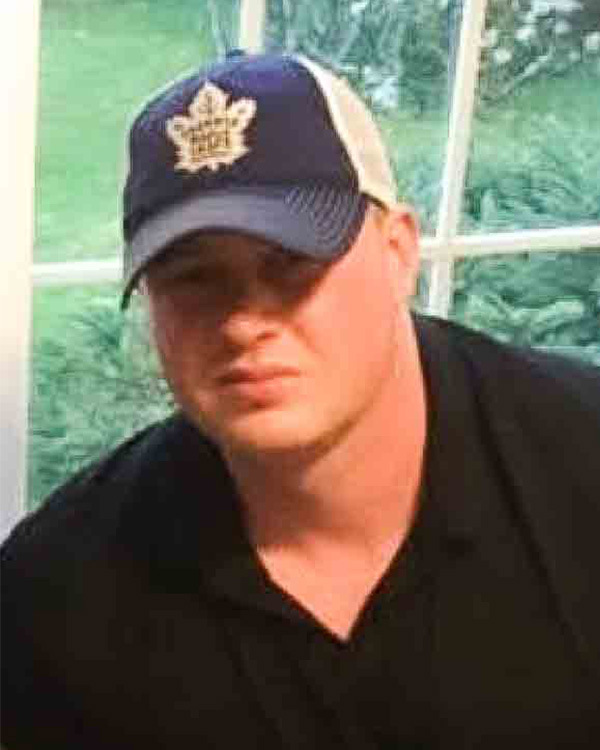
Wayne Macdougall
Wayne Macdougall
Wayne Macdougall is from Cape Breton in New Waterford, Nova Scotia. He is the co-CEO and founder of the SOS Foundation, which is a cooperative startup established in 2020. Previously, Wayne worked as a licensed red seal pipefitter/steam fitter.
Currently, Wayne is working with several U.S. companies on ocean research, intellectual property, design and patent work to further the work of the SOS Foundation. Presently, he is involved in research and design work on medical equipment (ventilator) and innovative fishing gear to reduce/eliminate marine entanglement. Since 2021, Wayne has received three provisional U.S. patents for this work -- one for the medical device (ventilator) and two for commercial fishing gear innovations.
In September of 2022, Wayne had an article published in the Substantial Fishing Gear Edition of the Sea Technology magazine -- a leading international marine publication. This article focused on Wayne and his co-founder's new innovation in commercial fishing equipment, the goals of which are to reduce marine entanglement, improve mariner safety, and eliminate fisheries closures.
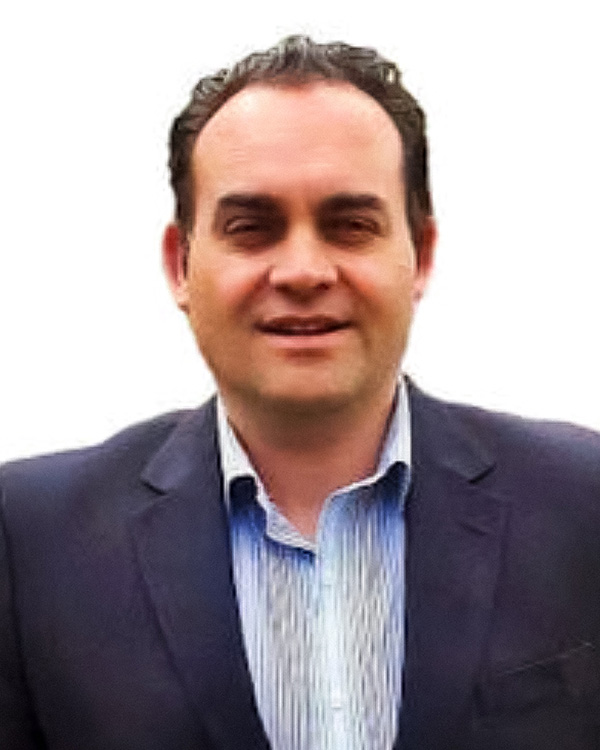
Darren Mitchell
Darren Mitchell
Darren has vast experience within the employment relations and labour law consultancy areas in advisory roles, and as a trainer and facilitator. This includes work in collective bargaining, dispute and grievance resolution, and guidance on the implementation of labour law and safety obligations and processes. He has also worked in the areas of human resource and compliance management.
For the FISH Safety Foundation (FSF), Darren has worked on and project managed fishing safety intervention projects in the Philippines, Bangladesh and in the Pacific Islands. These projects involved liaising with in-country project partners and local communities to conduct research into local fishing industry conditions, and the design and implementation of safety training programmes for small scale fishers.
Darren recognises the increasingly important connection between safe and sustainable fishing operations and human rights at sea. Through his work with the FSF, Darren has been able to draw on his previous professional experience to work on projects designed to improve the wellbeing of fishers and their communities. This includes FSF’s involvement in the global efforts to have countries ratify international conventions that place restrictions on IUU fishing activities and provide safety and labour standards for fishers who work at sea.
Darren is a board member of the Conservation Alliance for Seafood Solutions (www.solutionsforseafood.org).
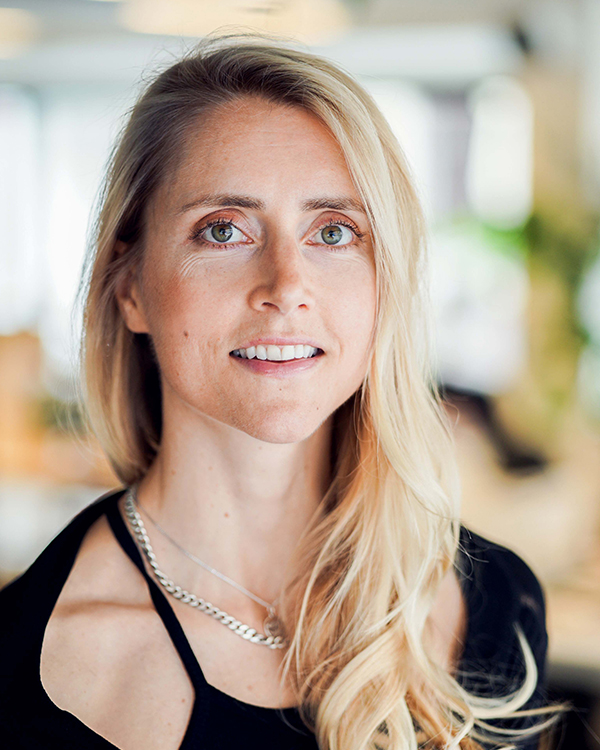
Siri Ostvold
Siri Ostvold
Siri Ostvold is an explorer at heart, with a love for the ocean. As a business architect she creates through exploration. With strategic design and innovation processes she leads brands, businesses and people towards a sustainable future, with the planet in the center.
She believes storytelling is a powerful tool to envision, align, educate and create action. She is engaged in ocean conservation and ocean regeneration, she has sailed across the North Pacific Ocean through the “Great Pacific garbage patch" to research micro plastics and toxins in our ocean and ecosystem, and she is a Norwegian freediving champion.
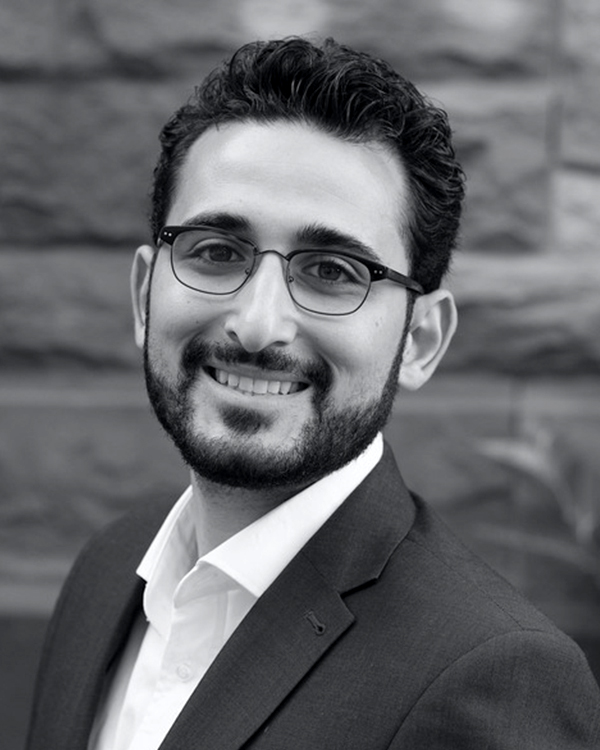
Saji Zagha
Saji Zagha
Saji Zagha is a Germany based Palestinian social impact entrepreneur. He holds degrees in business, economics and environmental governance from Birzeit University and The University of Freiburg. He is experienced in the fields of philanthropic fundraising, natural building, and medtech. In 2018 Saji co-founded Noor Medical to address the surgical safety needs he had witnessed while managing the construction of a surgical clinic in Chad. Saji is driven by his vision of a safer and fairer world, thus he provides mentorship and consultancy for entrepreneurs and development workers to help them focus their efforts on saving and improving lives of underserved communities.
COPE° Staff
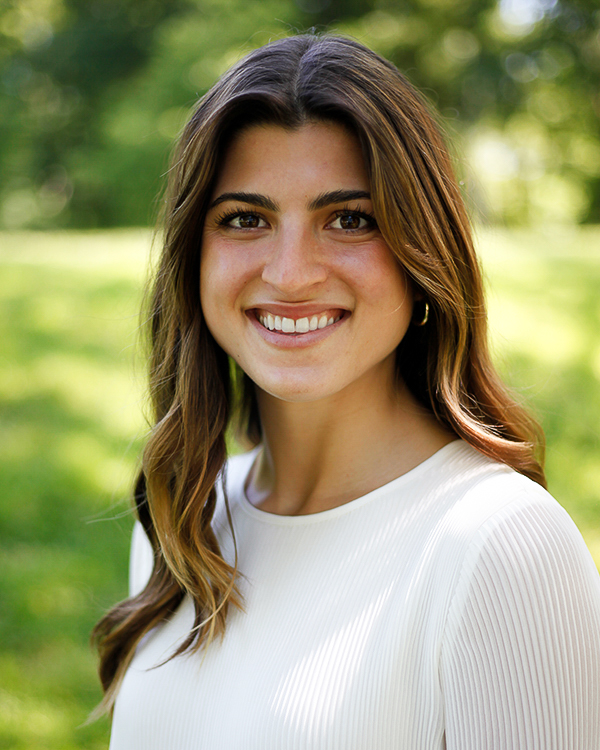
Hannah E. Dawicki
Director of Project Management
Hannah E. Dawicki
Hannah E. Dawicki is the Director of Digital Project Management at the Center for Ocean Policy and Economics (COPE°). Beyond her role at COPE°, she is the Director of Digital Operations at the Northeast Maritime Institute and the Chairwoman of the Northeast Maritime Institute Foundation.
Hannah graduated from American University in Washington, D.C., in 2020, where she received a Bachelor in International Studies with a minor in Communications. Hannah’s studies were focused on global equality and development, sustainability and global peace and security.
In the summer of 2019, Hannah completed an internship at the Atlantic Treaty Association (ATA) in Brussels, Belgium, where she conducted research on the activities of NATO and compiled the ATA's Annual Report. In the spring of 2020, Hannah completed an internship in the Atlantic Council's Global Energy Sector, where she assisted in compiling current events, organizing Atlantic Council events, and reporting on those events. From 2018 to 2021, Hannah was a Catalyzer for the non-profit Rockflower, where she aided in generating annual plans for supporting Rockflower and Rockflower partner initiatives and ran fundraising events.

